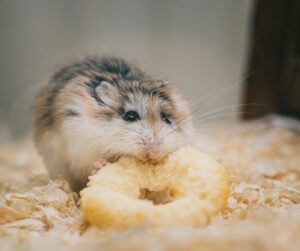
Nourishing Your Hamster: A Guide to the Best Foods for Your Tiny Companion
Hamsters are charming and delightful little creatures that bring joy to countless households around the world. To ensure that your furry friend thrives and lives a happy, healthy life, it’s crucial to provide them with a well-balanced diet. In this comprehensive guide, we’ll explore the key aspects of hamster nutrition, from their dietary requirements to […]